Lisa Stephen Friday gets personal in her new rock musical “Trans Am”
Friday performs the show live nightly at the Keegan Theatre for an online audience.

Last week, as the sun set on a third day of post-election confusion, Lisa Stephen Friday — singer, songwriter, actress, and creator of the new solo stage musical Trans Am — was feeling upbeat about the projected outcome. In rehearsals for Trans Am‘s opening at Keegan Theatre, the performer also sounded upbeat about prepping the world premiere virtual production with director and close friend Fred Berman.
“I’m in D.C., and Fred is in New York,” says Friday. “So we’ve been rehearsing virtually. And being that people are going to be watching it on their phones and their computers, it’s been helpful for Fred to be able to pick up on the nuances of that.”
Friday performs the piece, featuring the music of her former glam rock band Lisa Jackson & Girl Friday, live onstage with just her guitar and a microphone. Audiences will watch from their screens and devices, as they did when Friday debuted a cabaret version of the show in June, as part of Keegan’s BRS LIVE performance series. Under Berman’s direction, Friday has fleshed out Trans Am as a fierce and funny memoir of her dynamic life as a transgender female rock-and-roller.
Friday and Berman’s fruitful collaboration is the product of “a long experience together,” she says. “Fred and I have known each other now for over 20-plus years. We met doing the national tour of The Buddy Holly Story, where we were the Crickets. I was the bass player, Fred was the drummer, and then there was Buddy Holly. It was this little rock-and-roll trio. It was fantastic.”
The two formed a friendship and, later, a band with Steve Lavner and Jeff Gurner. The group, Lisa Jackson & Girl Friday, became cult favorites among New York’s early-aughts queer rock scene, before a period when the band members fell out. Friday, currently residing in Alexandria, turned her focus to the production side of entertainment, working for a lighting company. Berman’s spent the past ten years lighting up Broadway, playing Timon in The Lion King.
The erstwhile Crickets eventually rounded the circle of life to resume their friendship. “And then that is another reason why I wanted to work with Fred,” says Friday, “because he knows the story so well. I mean, Fred was not only in the band and my friend, he went through this transition with me, had a very bird’s eye view of it.”
As Friday reveals in the show, her transition was complicated by her own limited understanding at the time of what it meant to be trans. Not until the band was playing queer rock nights like Cheez Whiz, hosted by dearly departed NYC queen Sweetie, and shredding alongside influential trans rocker Jayne County, did Friday start to fully come into her own. “I came to that scene from a very vanilla, cross-dresser, hetero place,” she recalls. “I was trans, but I didn’t know it. I didn’t have the words. I didn’t have the understanding or the self-awareness yet.”
In the years since, Friday has gained a degree of self-awareness that’s allowed her to hone the writing and performance of the intensely personal Trans Am. Her first full-length musical represents not only a powerful statement for inclusion in theater, but an impactful show of inclusion for Keegan Theatre in particular. Friday had been set to lead the company’s planned summer 2020 production of Hedwig and the Angry Inch, but the pandemic, of course, prevented Hedwig from hitting the stage.
So, finally set to open a new show — her show — on Keegan’s stage, Friday indeed sounds upbeat, and grateful that the company is willing to back trans stories. “They’re risking so much,” she says of her collaborators at Keegan. “They can make no money on this, and they just don’t care. They’re like, ‘We have to tell stories.'” And Friday’s is a story they felt had to be told.
“I’ve fantasized about having this kind of production for years,” she says. “I always wanted to do this. To have someone actually produce your show is a big deal. Everything came together at the right time.”
[Editor’s Note: This interview took place before the election was called for President-elect Joe Biden.]
METRO WEEKLY: You’re currently in D.C. How are you experiencing this hectic election week?
LISA STEPHEN FRIDAY: Oh, my God, this week. So I will say, working on this project is saving my life right now. This has been such a struggle for so many of us in so many different ways. For me personally, to deal with the onslaught of attacks for the past four years on the trans community from the Trump administration is deplorable and disgusting. I’ll be honest, when I woke up Wednesday morning [after the election], I had a complete flashback to four years ago when I woke up and he had been elected. I woke up and I saw that map of just that fucking red blood everywhere, and it shocked me.
I was completely thrown back to the point of feeling like if he’s elected again, I’m going to now be living in a place where I really do feel in fear of my life in certain situations. Because it gives people permission to be violent to trans people, to people of color, to anyone who’s not hetero, Christian, and white. So now, I’m so ready to party. But I’m like, “It’s 2020. Uh-uh, do not party until it is set in stone.”
MW: We count no chickens in this crazy year. Is the uncertainty affecting your preparations for what Trans Am‘s story is going to be? Or will it not really affect that?
FRIDAY: Hopefully by next week we know, right? And I think going into opening night, it will just be enhanced, because this is now a celebration, or it will enhance it because all of these creative people have come together and uplifted a trans voice in such an important time in America. Listen, I want him gone, right? That’s the first piece of the puzzle. Where he’s gone, out, leave, bye. But do not forget, there are still [70] million people who voted for Donald Trump. That’s a problem. It’s a big, big problem.
MW: I’ve watched the cabaret version of your show, and it opens with a list of 70 actions that the Trump administration has taken against trans individuals. You know about that and I know about that, and really for me, this entire year I’ve felt like, well that should be enough for people. It should be enough to disqualify the Trump administration from four more years. But I don’t think that message really got out there.
FRIDAY: I think for trans people, unfortunately we’re the last rung on the ladder, and unless you have a trans person in your life, or you’re an extremely aware person, you don’t know what that struggle is. You’re not paying attention. You don’t care. That is the truth. So yes, I can say to people, “Yeah, trans people can’t serve in the military,” and they’re like, “What? When did that happen?” And I’m like, “Four years ago. That’s when that happened. Five minutes after he took office. How do you not know this?” But we are one percent of the society, and we’re still viewed as a group of people that truly are just dismissed.
MW: What would you expect or hope from a Biden administration that we didn’t see from Trump?
FRIDAY: I would expect that they have a diverse staff that represents every type of person we can imagine in America. If they don’t, they’re idiots. Again, getting Trump gone is the goal right now, but that is just that much of the work. We still have everything else. The deaths of COVID. Black Lives Matter. Trans rights. Immigration. I mean, it’s all still there, and [70] million people still voted to keep it there. So we have a lot to do.

MW: In the cabaret you mentioned you hoped that Hedwig at Keegan might still happen. If that happens with you, a lot of audience members including myself will have seen the role performed previously only by cisgender men. Most people won’t have seen a trans woman perform the role of Hedwig. What do you think is the significance of that?
FRIDAY: I think it’s very interesting, because Hedwig the character — I mean, is Hedwig trans? It’s very ambiguous.
MW: I didn’t want to say. I don’t know.
FRIDAY: I mean, I don’t think Hedwig is trans, right? I think Hedwig is a person that made a decision to get out of a desperate situation. Maybe they’re non-binary. But there is a lot of regret in Hedwig’s story. Getting the botched sex change, it’s not a nice story. It’s a great story of self-acceptance and self-love, but I get a little challenged with it at times too — like, how do I tell this story as a trans woman? Because it is a bit dated. It’s a bit sensationalizing of medical transition for trans people. And we’re in such a time of momentum for trans people that I don’t want to tell any story that doesn’t bring truth to it.
I know John Cameron Mitchell, and I know of Stephen Trask, and I know what kind of people they are. They were not writing something to be dismissive or degrading to trans people. It’s just at that time this was the story that they came up with, right? So it’s not a bad story, but is it a story that needs to be told again? And I think if it does, then having a trans person play it is a must. I don’t know. Maybe I shouldn’t say that. I think having a trans person play it is important in this moment.
MW: Something else about Hedwig is that she has The Angry Inch backing her up. You were part of a band. Trans Am is a solo act. How does it feel being on stage on your own?
FRIDAY: Well, first of all, it’s exhausting. It’s a one-woman musical, and now we even have a couple of numbers where I’m really running around, and doing the whole rock-and-roll thing. So it is equivalent to Hedwig in that experience, that it’s become very physical. But it’s exhilarating to do.
Even when the band was in full swing, I was always doing some solo gig, or a radio show, or something like that. I would always do those by myself, just on acoustic guitar. And most of the songs that I’ve written were written with me sitting in my room on acoustic guitar, so they come from that place. I actually feel like, if I can’t sit by myself and play it on acoustic guitar, if it’s not good like that, then it’s not really a good song. If you’ve got to get all the other stuff on it to make it good, then you’re just polishing a turd. So it’s demanding in that way too, though, because there is only the guitar, and some of the singing is very demanding. I can’t hide behind the keyboard player and the drummer and the bass player, and just scream my way through something. I’ve got to hit the notes.
MW: The show also won’t have a live audience. There won’t be a crowd in front of you. Will you see the audience in any way? How do you intend to engage with whomever’s out there?
FRIDAY: No, I will not see anyone. And in fact, I will have them put little sticks of glow tape on the cameras. Because you know, we’re not in a production studio here. We’re still in the theater, and the theater got a grant to get these new cameras, and everything’s going to look great. But still, I’m looking into a black hole, and I can’t even see the cameras. So I have little pieces of white tape on the camera, and I’m just going to have to make the decision of, “That’s who I’m talking to. I’m talking to the camera.” I can use my own acting skills, just like I would if I was actually doing an audition to a camera or a movie or whatever. It’s that kind of approach — the camera is the person. And it’s a challenge. It also makes it more intimate, but also you’re still doing a piece of theater. So it’s a hybrid of how these styles are all going to work together.
MW: So in that sense, the camera people will be the only ones in the room?
FRIDAY: Well the cameras are remote, so there’s only the one camera person. And when I mean remote, there’s not a cameraman zooming in and out. [The cameras] are all stationary, but they can remotely digitally zoom in and zoom out. But it’s not even like there’s a crew. I have a sound person, a video person, and a lighting person. There will be four people in the theater at any given time, that’s it. It’s very bizarre.
MW: Where are you going to get that energy, that warmth, that a performer thrives on?
FRIDAY: The gods. [Laughs.] It’ll be very interesting to do. It takes a lot of trust, and I think it’s one of the reasons I wanted to work with Fred, because I trust him implicitly, with his ability to help me tell the story. And trust that the production crew is telling the story with me. There’s so much technical stuff involved with this. Is the feed good? Is the sound good? I have no control over it. I just have to let it go, and have to do the show. This is what happened with the cabaret show you saw. I came off stage and my phone was exploding with everyone who had watched it that night, people who had my number. And it was just like a curtain call. I didn’t get to do it in front of everyone and hear all the applause, but I went back to my dressing room and my phone was just blowing up. And I was like, “Oh, this is going to be the energy of it. I need to do this every night.” Because you don’t know. You’re like, “Who’s watching? Is anyone fucking watching this?” So it just takes a lot of trust.
MW: Rock musicals aren’t so rare, but autobiographical rock musicals are very rare. Which came first? The urge to tell your story, or the urge to write a rock musical, and it just happened to be your story that you wrote about?
FRIDAY: I never set out to write a musical. And when I use the word write, I am truly a dyslexic person — I struggle with learning disabilities, so even in my work, written communication is the downfall of me, it terrifies me. I was like, “I’ve never written more than 500 words at a time. I can barely fill out my Tinder profile. So how am I going to do this?” So I think it was really good when I did the cabaret, because it got the story out of me.
The music — it’s interesting. The songs are so autobiographical. I wrote most of these songs almost 20 years ago. So now, I read the lyrics and I’m like, “Oh my God. That’s exactly what I was going through.” I still have the lyric, it’s not a literal lyric, but I know why I wrote that. I remember that moment in my life, why I wrote that. So it was really just stringing the songs together, and then filling in the dialogue, just to continue the story from Point A to Point B. I’m not the most disciplined person when it comes to this stuff, so I think when I write songs and when I wrote the play, it happens when I’m ready for it to come out of my head. And I’m not the kind of person that can sit down and write a couple of lines, and then piece this together and that together. It’s got to come out of me as a story. And every weekend I would sit down for a couple of hours a day, and I would just write five pages. Just come out of me, and then I would send it to Fred, who’s like, “That’s great,” or “Cut this, cut that,” or “Add this.” I mean, it happened fast.

MW: You talked in the cabaret about going home to your family to come out as trans. First of all, where was home? And what is your relationship to that home now?
FRIDAY: So at this very moment, I’m starting to think, “Okay, all right. Maybe we can talk again.” Because I’m from Georgia. And I’m like, “Oh, wait. You’re what? You’re voting for who?” So yeah, I grew up in Fayetteville, Georgia, which is just 40 minutes south of Atlanta. I talk about it a lot. I try to make the connection, too, that I had this great childhood, in a very Southern boy/Huck Finn kind of way, and I like that stuff. I love fly fishing, and I love the outdoors, right? I have all these hobbies that I got to do as a kid. But the binary place that that put me in was devastating, and incredibly challenging. Still, to this day, there are challenges within my family that will never be resolved. So those stories that you heard in the cabaret, it goes into much more detail in the show.
MW: There’s a concept you mentioned, of “Always pushing each other up the hill to equality.” I like a good physical metaphor. Personally I see the hill as just as steep, but it feels like there are more people pushing. What’s your take on pushing up the hill?
FRIDAY: I think again, in this moment, and what Black Lives Matter has taught us — taught me — is that the only way to get up that hill is to take the most marginalized person we have, and put them at the front of the line. Because until they’re standing on top of that hill, nothing else matters. It’s very clear what’s happened in the gay movement. White males with money, at the end of the day, are the ones on the top of the hill. And that’s not a hill that I want to stand on. I want to be there with everyone who represents the queer community, and I want to be there with the people who challenge us to look past our physical beauty, our understanding of normalcy. Let’s put the people up there who are really challenging society, and busting out our social norms. That’s the hill I want to be on, because I think that, ultimately, until those people are at the top and in the front of the line, what’s it matter? You’re still leaving someone at the bottom of the hill, and you’re going to have to go back and get them. So what you’re trying to accomplish is never going to happen. So just fucking get over yourself and pick them up, and let’s go.
MW: We did get to see this week a couple of people get to the top of the hill, like the newly elected Delaware State Senator Sarah McBride, which was really exciting. And Danica Roem is still kicking ass. What do you hope for, beyond what Joe Biden or Kamala Harris, or any of the cisgender, heterosexual people can do? What are you hoping for in terms of more political action from trans people?
FRIDAY: I think that what’s happening, the trans people, the non-binary people who were just elected, that we have to acknowledge that. It’s huge. That is tremendous, that’s starting to create a space at the table, right? Now we just have to elevate and support those people to get them to the national table, to the federal table. When I think of trans people in politics, of course we have to push the trans agenda, because we are struggling and we’re fighting for basic human rights. So we have to push that agenda. That’s our number one goal at the time, but the big picture is, no, you need trans people at the table because every single person in this country needs representation. And when we get to that place of equality, it’s that everyone is there represented, and we’re not just having to represent our micro agenda just so we can have a job and not get fired for being who we are. And we can all bring all of our experience, all of our human experiences to the table, to really have a society that is joyful and free. Isn’t that really what we want? I know in my heart it’s a long process. I mean we’re talking, what, twenty, thirty years before we really see the change in our Congress and our Senate? The Mitch McConnells are still going to be there for a while.
MW: If the presidential election does turn out the way we would like things to turn out, what will you do to celebrate? How will you express your relief, gratitude, excitement, whatever it is that you’ll be feeling?
FRIDAY: I think that I will give myself a week to be like, “Yes, he’s gone.” Because to me, this is about Donald Trump being gone. This is about removing the chaos. This is a deplorable, disgusting person. So celebrate that that is gone, but quickly get back into gear. The reality that we’re pushing 300,000 people in this country have died of COVID. Black men are still being shot in the street. Trans people can’t serve in the military. We have hideous immigration issues going on. So we can take a breath, we can celebrate that Donald Trump is gone, and we’ve got to get to work. We have to use this momentum and this reality of [70] million people voting for this bizarre fascist asshole, that America is capable of living in a chaotic fascist state, and we can’t forget that. We have to get to work, seriously get to work, and get behind all of these people, all these trans people who are stepping up to be elected, Stacey Abrams, every Black leader you can find, and push, and push, and push. I think Black Lives Matter is a huge reason why Donald Trump has been removed, or I hope he’s removed. And I just want to say, it’s like, “Okay, now white people, you did not save democracy by voting for Joe Biden. He’s gone, it’s gone, get in the street.” We have to stay in the street and keep pushing.
MW: Since we were talking about character, and individual character really played into how people voted this year, what do you think as an artist you can do to promote this idea that character matters?
FRIDAY: I’m feeling a responsibility now. I feel a responsibility as a trans woman who has a quarter of a century of experience in my trans body. And for my community, that’s a long history. And seeing what has happened, I’m like, it’s been a part of why I’m doing this. I was gone, just doing my 9-to-5, just living in the world, shopping-in-Georgetown life. And I was like, “No, I have a responsibility here to show the kind of character and the kind of bravery that trans people need to succeed in this world.” And I can take my experience and my story, and I can tell it intelligently in a fun way, in a rock and roll way, but ultimately in an intelligent way, that shows a trans experience is a human experience. And we have to make that connection so that we can create space for trans people in this world.
Trans Am runs through November 29, with each performance streaming live from the Keegan Theatre, 1742 Church St. NW. Tickets are $30 per household. Visit www.keegantheatre.com.
Support Metro Weekly’s Journalism
These are challenging times for news organizations. And yet it’s crucial we stay active and provide vital resources and information to both our local readers and the world. So won’t you please take a moment and consider supporting Metro Weekly with a membership? For as little as $5 a month, you can help ensure Metro Weekly magazine and MetroWeekly.com remain free, viable resources as we provide the best, most diverse, culturally-resonant LGBTQ coverage in both the D.C. region and around the world. Memberships come with exclusive perks and discounts, your own personal digital delivery of each week’s magazine (and an archive), access to our Member's Lounge when it launches this fall, and exclusive members-only items like Metro Weekly Membership Mugs and Tote Bags! Check out all our membership levels here and please join us today!






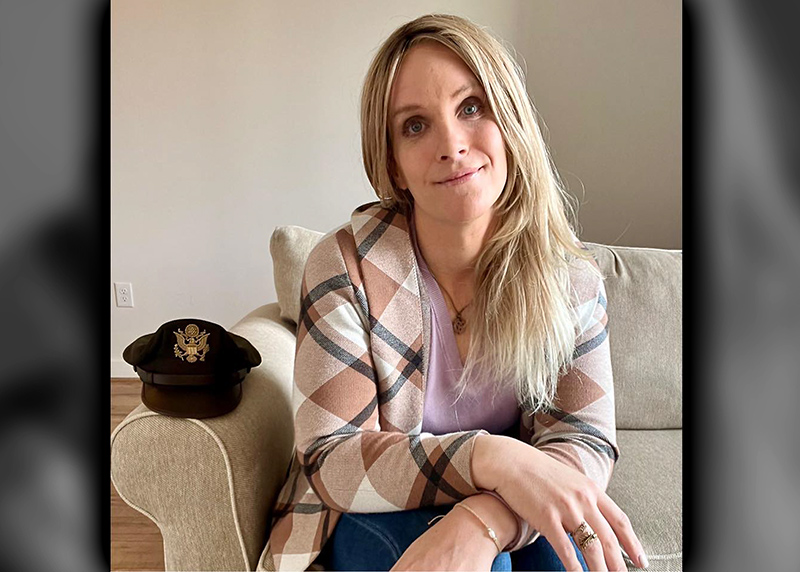
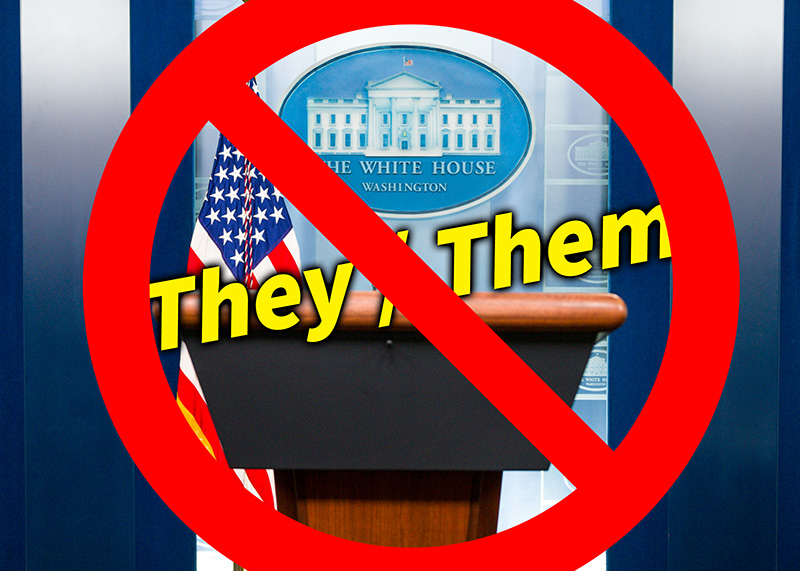













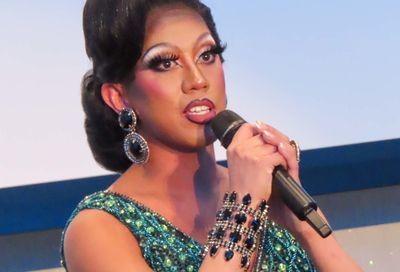
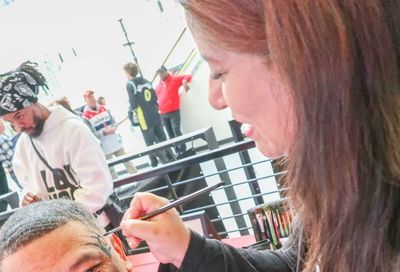
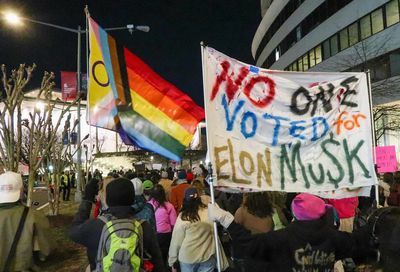
You must be logged in to post a comment.